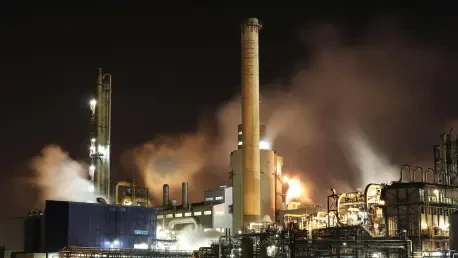As 2025 unfolds, the energy sector is abuzz with discussions surrounding the U.S. Department of Energy’s (DOE) critical decision to delay the closure of the J.H. Campbell coal-fired power plant in Michigan. The DOE invoked Section 202(c) of the Federal Power Act, emphasizing ongoing worries about potential power outages in the Midcontinent region this summer, primarily managed by the Midcontinent Independent System Operator (MISO). This situation highlights the nation’s struggle to balance energy transition while maintaining grid reliability.
DOE’s Decision Sparks Discussion on Energy Policy
In response to the unease about power shortages during high demand periods, the DOE’s move has reinvigorated conversations in the energy sector. The decision underscores the delicate state of grid reliability as the U.S. rapidly transitions to cleaner energy sources. The DOE’s use of emergency authority, typically invoked at the behest of grid operators or plant owners, marks an unusual proactive approach, raising eyebrows and fostering debates about regulatory practices and energy policy directives.
Expert Insights: Energy Transition vs. Grid Stability
Recent forums have illuminated the challenges of meeting energy demands while retiring traditional coal plants. Experts emphasized the need for a well-coordinated transition that secures reliable power supplies despite infrastructure limitations. Current assessments indicate that, although no region is rated at high risk, MISO and similar areas face an increased risk of shortages during peak load periods, stressing the importance of strategic resource deployment.
Innovation and Engagement in Energy Resilience
Workshops and group activities have been pivotal in generating innovative solutions to bolster grid resilience. Collaborative efforts have focused on integrating renewable sources and advanced grid technologies, such as smart grids and battery storage systems, which can mitigate dependency on coal. Noteworthy demonstrations of these technologies signal a viable path toward energy sustainability without compromising grid reliability.
Long-Term Implications for U.S. Energy Strategy
The DOE’s intervention offers a snapshot of the broader challenges in U.S. energy policy, highlighting the necessity of aligning decarbonization with grid stability. Consumers Energy’s compliance hints at a future where utility companies must balance regulatory directives with strategic expansion, seen in their plans to enhance gas-fired capabilities. This decision maintains relevance in shaping industry trends and influencing future infrastructure investments and regulatory measures.
The DOE’s intervention at the Campbell plant prompted substantial reflection and dialogue on the complexities of U.S. energy policy. As the energy landscape evolves, stakeholders are challenged to innovate and adapt to ensure a reliable, sustainable power supply. The lessons learned are set to influence future energy strategies and regulatory practices in a constantly changing environment.









